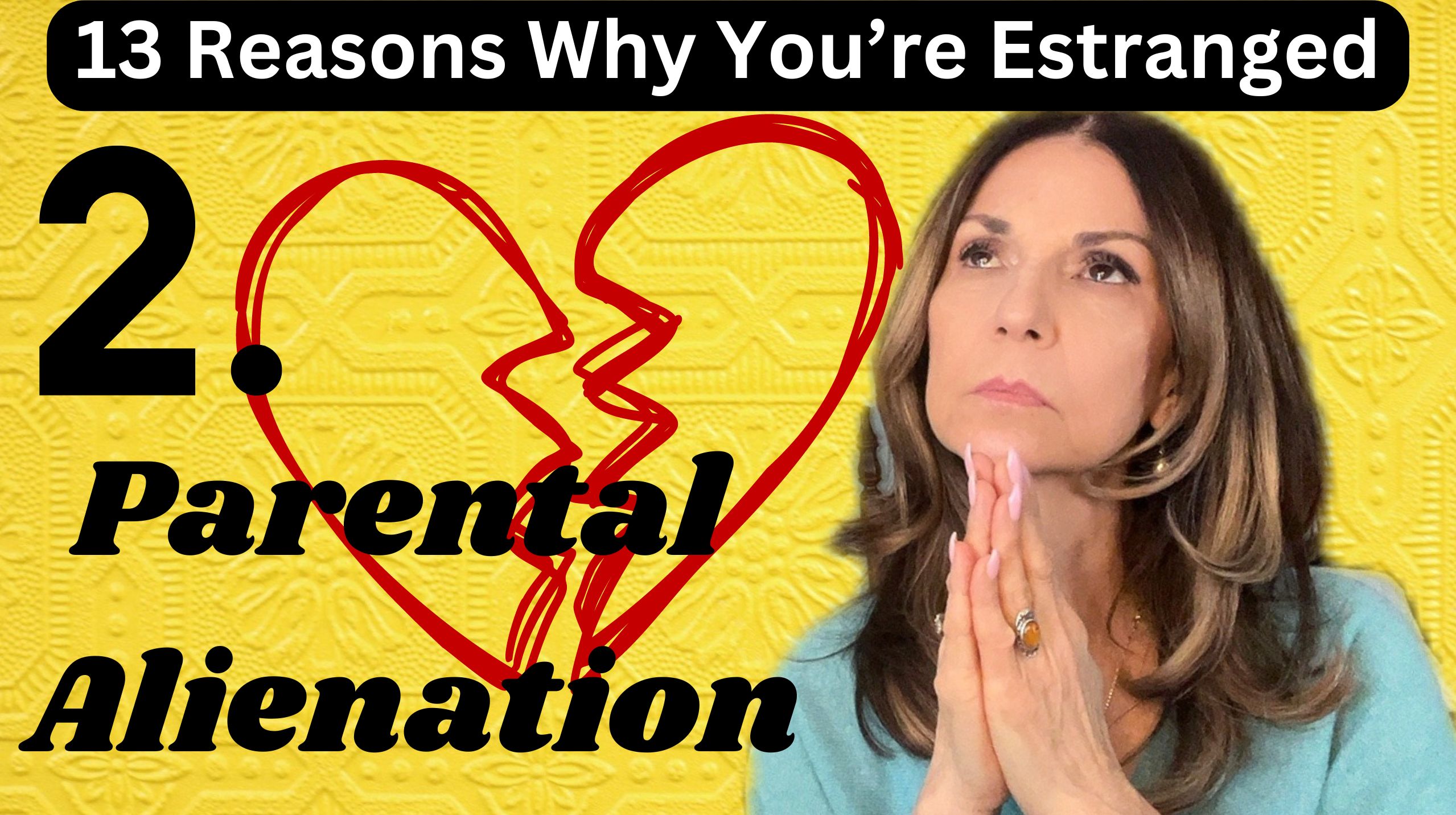Welcome back to our continuing series, 13 Reasons Why You’re Estranged, where we delve into the complexities of family dynamics and estrangement. This is part 2 of 13 Reasons Why You’re Estranged. Today, we embark on a journey to unravel the intricate relationship between parental alienation and family estrangement. If you’re joining us, prepare for an in-depth exploration of the multifaceted reasons why families are drifting apart. So, grab a seat and get ready to dive deep into this complex and often challenging topic with us.
In the first part of our series, we delved into the challenging topic of divorce and its impact on family dynamics. If you haven’t already watched that video, we highly recommend doing so to catch up on the foundational understanding of estrangement within families. Understanding the complexities of divorce lays the groundwork for comprehending the subsequent discussions on parental alienation and other factors contributing to family estrangement. So, please take a moment to watch and read the blog on the first part and join us as we continue to explore the intricacies of family relationships.
Let’s dive into the five key points you should know about estrangement and parental alienation:
1. Undermining Trust:
Parental alienation is when one parent deliberately weakens the connection between a child and the other parent. This deliberate act chips away at the child’s trust in both parents, causing significant harm. As trust is the bedrock of any family unit, its erosion can profoundly affect the child’s perception of their parents. This erosion can also shake the very foundation of trust within the entire family, creating a ripple effect of instability and insecurity. Thus, the consequences of parental alienation can extend far beyond the immediate relationship between the child and the targeted parent, impacting the overall family dynamic and sense of security.
2. Emotional Manipulation:
Children who find themselves caught in the middle of parental alienation often become unwitting victims of various emotional manipulation tactics. These tactics can range from subtle forms of guilt-tripping to more overt methods like gaslighting. As a result of these manipulative techniques, children may feel pressured or coerced into siding with one parent over the other, even if it goes against their feelings or beliefs. This internal conflict can lead to a whirlwind of emotions, including confusion, anxiety, and distress. Over time, the cumulative effect of such emotional manipulation can take a significant toll on the child’s mental and emotional well-being, exacerbating the already challenging dynamics of parental alienation. Thus, it’s essential to recognize the insidious nature of emotional manipulation in the context of parental alienation and its detrimental impact on children’s psychological development and family relationships.
3. Identity Confusion:
When children are exposed to conflicting messages about one parent’s character due to parental alienation, it can create profound identity confusion. This confusion arises from the disparity between the negative portrayals of one parent and the child’s own positive experiences and perceptions of them. As children grapple with these conflicting narratives, they may question their own understanding of their parent’s true nature and struggle to reconcile these opposing views. This internal conflict impacts the child’s perception of their parent and extends to their sense of self and place within the family dynamic. Consequently, identity confusion becomes a significant factor in shaping the child’s emotional well-being and influencing the overall family dynamics, adding another layer of complexity to the already intricate web of parental alienation.
4. Disrupted Attachment Bonds:
Parental alienation doesn’t just strain relationships and disrupts the natural attachment bonds between children and the targeted parent. These attachment bonds are crucial for a child’s emotional development and sense of security, serving as the foundation for healthy relationships and emotional well-being. However, when a parent is systematically marginalized or vilified, it undermines the child’s ability to form and maintain these essential bonds. As a result, the child and the targeted parent may experience a profound sense of disconnection and estrangement. This disruption doesn’t just affect their relationship; it reverberates through the entire family dynamic, contributing to feelings of isolation and alienation. Thus, the consequences of disrupted attachment bonds extend far beyond the individual relationship, shaping the overall family dynamic and emotional landscape.
5. Ineffective Communication Patterns:
Hostility, conflict, and a lack of parental cooperation exacerbate parental alienation, driving a further wedge between family members. To learn more about this, stay tuned for part 3, we’ll explore the role of ineffective communication parenting in parenting that can lead to estrangement.
If you or someone you know is experiencing the challenging effects of parental alienation, it’s crucial to reach out for support from a qualified mental health professional. With their guidance and expertise, you can navigate the intricate nuances of this harmful dynamic and embark on a journey toward healing and restoration.
Thank you for joining us on this enlightening journey through the complexities of parental alienation in our series. Remember to subscribe to our channel for updates on future episodes and invaluable insights. Please comment on your thoughts and experiences below.
Always remember, even in the darkest times, you are not alone—support and assistance are available to guide you through.









